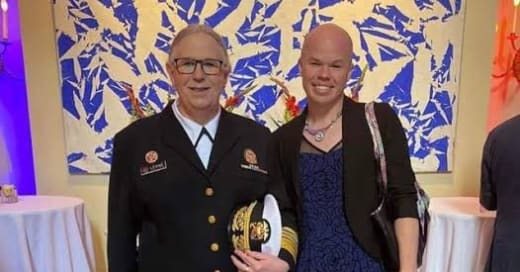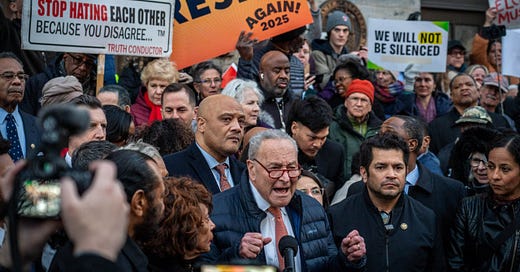Econ 101, a Fable
Historians of the future, poaching ‘possum snouts in sorrel sauce over their campfires, will trace the fall of Western Civ in the 2020s to the dissolving hallucination that was called the financial economy. It was a phantom parasitical organism that thrived on the back of a real economy based on making-and-doing things derived from the natural world, turbo-charged by fossil fuels.
The orgy of making-and-doing went on for two-hundred-plus years. Even with cyclical “recessions,” the making-and-doing always increased in the aggregate, while its products got ever more plentiful, elaborate, and complex. The phantom financial parasite clinging to its back got used to this “growth” and it, too, developed ever more ingenious ways to suck the life out of its host organism, until it became a greater entity than the host itself, breaking its back.
The whole of this chapter in the long-running human project had strange effects on human minds that had not changed much since the late days of hunting and gathering. After the first hundred years of fossil fuel plentitude, humans had a hard time telling the difference between the host and the parasite. Both of them seemed to thrive equally. The real economy produced food and useful things and the financial economy produced money, which could buy food and useful things.
People made things incessantly, especially better and better tools and engines. That allowed people to grow more food and make more useful things that provided comfort and convenience. The financial economy made more and more money. It also produced myriad new ways for money to represent itself. At first, these things such as stocks and bonds (ownerships and loans-at-interest) were firmly attached to activities in the real economy — that is, they were sucked directly out of the host’s makings-and-doings.
Later on, the things which represented money became more numerous and more detached from real makings-and-doings, more abstract, more based on promises, hopes, and wishes than on things derived from nature. That is to say, these newer representations of money tended ever more to a realm of the unreal. After a while, it became very hard to tell the difference between money-things that were real and unreal. The financial economy furnished plenty of mystification to blend the two. This confusion prompted plenty of fraud, a brisk commerce in unreality that produced winners and losers.
Every story has a beginning, a middle, and an end, of course. As the fossil fuel supply drew closer to its end and further from the long, happy middle time of plenty, the business model for making-and-doing started to shudder and crack. It didn’t fall apart all at once, but it put many makers-and-doers out of business. They stopped making-and-doing. By then, the financial economy was a colossal phantom parasite that dwarfed its host. It was burdened with so much unreality, so many workings dissociated from nature, that it could no longer pretend to be anything but a phantom.
To keep the host alive, it upchucked some of what it had sucked out of the host, adulterated with money based on unreal promises, hopes, and dreams. This turned more and more into a spewage of money so debased by broken promises, hopes, and dreams that making-and-doing just about stopped altogether. That is when the phantom parasite of finance began to dissolve and humans began to regard it as an hallucination that had gone away, dissolved into mist. What remained were a lot of humans embedded in nature.
And that is the place where the humans of Western Civ find themselves in the 2020s. Western Civ was the first region of the world that tapped into the fossil fuel orgy and it is now the first region exiting this phase of history. Even when the financial hallucination melts into air there will be a lot of real things around that were made before the great age of making-and-doing stopped.
Humans are ingenious animals, enterprising and resilient, though there will surely be fewer of us around. These fewer humans will likely be healthier, working more directly in nature and no longer compromised by the pernicious by-products of all the bygone making-and-doing. We will figure out how to use the left-over useful things to get food out of nature and keep making other useful things. The new making-and-doing will happen at nothing like the former pitch or scale. It may represent a time-out from the lost experience of the old, ever more elaborate and complex makings-and-doings. After a while, humans may discover a new way to get more out of nature. Or maybe not.
In the meantime, lodged as we are in the present, in the moment of this epochal transition, anxiety besets many millions of minds. Not a few minds have grown disordered watching all this go on around them, dreading the journey from one disposition of things to the next. Some have made themselves obnoxious. Let them do what they will until they tire themselves out. Keep your own well-ordered minds on the tasks ahead, your own makings and doings within the bounds of what is real. Take some time out to make some music. There are still plenty of good instruments around, and you can always sing. Put a meal together with your friends and loved ones and sing out. It’s all right, Ma, Bob sang out long ago, It’s life and life only.









